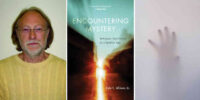Most of us like to think we make good choices based on well-thought out reasons.
But what about when we think about God and decide on our beliefs? Do we have good reasons for what we believe? Is it only the other side who have allowed their personal feelings to over-ride the evidence?
How we arrive at our opinions
Psychologists have learnt a lot about how our brains work and how we form our beliefs.
Modes of thinking
All of us have two different ways we think.
Intuitive thinking: When we first come across something new, our brains tend to form opinions quickly, presumably because in some situations we need to make quick decisions. Rather than follow a completely logical train of thought, our brains use short cuts and rules of thumb (called “heuristics”) to form an opinion quickly and make a decision.
Analytical thinking: if we have time, our brains may then do a more structured analysis of the issue, gathering more information (from memory or outside sources) and testing our original intuitive response.
- All of us use both modes at different times, but some people may use analytical thinking more than others do.
- Some situations better suit intuitive thinking, and others better suit analytical:
- Intuitive thinking will be better for simple matters not requiring analysis (e.g. what to have for dinner), for it may not be worth the brain power to do much analysis.
- Intuitive thinking may be better for complex matters where there is insufficient information or time to do a full analysis.
- Analytical thinking is best for situations where there is information and a clear process to arrive at a decision (e.g. in scientific work).
- Intuitive thinking isn’t necessarily emotional, though it may be.
Analytical thinking vs intuitive thinking
Jonathan Haidt says that in ethical, political or religious matters, our intuitive thinking almost always takes control, and our analytical thinking generally only serves to rationalise the belief or conclusion we have already arrived at.
But other psychologists argue that several factors can modify this picture.
- Some people do indeed agonise over ethical decisions that may go against their natural disposition, and analyse them using analytical reasoning.
- Rational argument can trigger new intuitions.
- Intuitions can be based on previous rational consideration, by that person, or by others in their shared culture.
- Heuristics such as “good versus bad consequences, actions versus omissions, and intentional versus unintentional acts” may be very rationally based and very helpful in forming moral judgments intuitively.
- Thus it is quite possible that intuition is quite rationally based, even if the person using it hasn’t used analytical thought themselves.
On the other hand, it is possible, perhaps even common, that both intuitive and analytical thought are coloured by what we have chosen to read or hear, or not. Social media and Google search can bias what we see to conform to our own preferences, and thus bias our beliefs.
Forming beliefs about God
Philosophers, psychologists and teachers tell us there are several sources of our beliefs. The ones most relevant to beliefs about God are:
- Authority – relying on a credible source of information. We all do this when we visit a doctor. And many believers accept the authority of parents (when they are younger), priest or the prevailing culture. Non-believers may do the same, although with different types of authority figures.
- Experience – observation and experience in our own lives. A person may believe they have experienced God in some way. This may be a quite overwhelming experience (e.g. the healing of Barry Dyck) that almost forces someone to believe. Negative experience (e.g. unanswered prayer) may lead someone towards unbelief.
- Testimony – a person may be convinced by the experience of others. This is in a sense a combination of #1 and #2.
- Intuition – it may seem right or obvious to someone that God exists, or doesn’t. They may not be able to articulate a reason, but may have some logical argument.
- Evidence – a person may look at the world and conclude that the best or only way to explain what they observe is that God exists, or doesn’t.
Which of these ways of believing (or disbelieving) are intuitive rather than analytical? Does this make them irrational? And wrong?? Or are they quite reasonable bases for belief?
Analytical, intuitive and God
Analytical thinking is more likely to lead to unbelief. Or does it?
Belief in God seems to be natural (some say) and intuitive. A number of studies have found that when people use analytical thinking, they are less likely to believe in God.
This suggests (to some) that religious belief doesn’t stand up to rational scrutiny.
However other studies indicate that analytical thinking increases doubt. That is, believers are less likely to believe and unbelievers are less likely to disbelieve. The more we ponder and self-question, the easier it is to doubt any conclusion, whether theism or atheism.
This isn’t entirely unexpected. Intuitive thinking has evolved, it is said, because some questions are too complex to be resolved by analytical thinking, which is more likely to make us tired and confused if we don’t have sufficient information. Ethical and religious questions may therefore be more likely to be answered by intuitive thinking, and employing only analytical thinking may lead to uncertainty.
Further, the link between analytical thinking and disbelief isn’t always strong, and in many studies it is non-existent. Many Christians are analytical thinkers capable of high level scientific and logical thought.
Intuitive thinking and religious belief
So it seems that religious people are more likely to think intuitively, trusting authority or experience, and less likely to allow subsequent analytical thinking to sway their views. Sometimes faith is invoked to support a less analytical approach.
Is this a “bad” thing?
Since intuitive thinking is more suited to complex questions with unclear information, it may be that it is the better way of approaching the question of God’s existence, for some people at any rate.
- W riter Paul Kingsnorth spent a decade of his life trying out different worldviews and beliefs – atheism, environmental activism, Buddhism, wicca and eventually Christianity. He didn’t really have analytical reasons for any of these beliefs, but judged them more by his experience – how they satisfied him and his aspirations. He eventually came to the conclusion that Christian belief made more sense of the world and human nature than materialism or any other spiritual view did.
- Some people have experiences (e.g. healings and visions) that seem to point to God being active in their lives. The rest of us can theorise about possible alternative explanations, but none of us knows the experience first hand. Is it foolish or wrong for someone to be influenced by these experiences to believe in God?
- Other people have experienced enormous positive changes in their lives which they attribute to God’s intervention to give them hope, meaning, help. The positive outcomes are undeniable. Are they foolish to believe God helped them?
Is all this unreasonable? Some would say so, but others would say that personal experiences, especially those that can be documented, are strong evidence. And that the way a belief works in life is an indication of its truth.
Intuitive thinking and disbelief
Some people seem to be intuitive atheists, and doubtless many non-religious people in secular societies haven’t thought deeply about their unbelief and more than many religious believers.
But it seems that even highly analytical people can have intuitive disbelief.
Many reviewers (both believers and unbelievers) of Richard Dawkins’ 2006 book The God Delusion commented that the strength of Dawkins’ conclusions was way stronger than the force of his arguments, which most found quite weak and easily refuted. (I will be reviewing a book on this theme soon.)
This suggests that Dawkins allowed his intuitive opinions to over-ride has analytical thinking, showing that it’s not just religious believers who may do this.
Personal conclusion
I’ve tried to fairly reflect what the psychologists have said about the way we think. Now I want to give a few personal responses.
It seems clear to me that we all use intuitive thinking to make snap judgments, and only sometimes revise those judgments after later reflection. Some don’t allow their thinking about religion to take them too far away from what they already believe. This is mostly those with the strongest opinions – in post Christian societies this would mostly be believers, but in more secular societies this would mostly be non-believers.
This doesn’t necessarily make intuitive thinkers “wrong” or irrational – their intuitions and experiences may be very well based. For example, intuitions based on our past experience, or the experience of another person who is reliable, or the analysis of someone else who is a clear thinker, are reasonable ways to come to a conclusion.
In the end, people believe or disbelieve in God for a variety of reasons based on different modes of thinking, just as they make decisions on other aspects of life such as ethics, politics, relationships and aesthetics. So conclusions about God may be made as confidently (or not) as we make other decisions about the important things of life.
But we can all guard against confirmation bias and selective ignorance (where we refuse to read an alternative viewpoint). I fear for the future of western democracies if we don’t!
This leaves an unanswered question: do we want to live with viewpoints on religious, moral and political questions, or are we happy to remain doubting of all viewpoints? Since analytical thinking can lead to greater uncertainty, we may need to use a mix of intuitive and analytical thinking if we want to come to a conclusion, however temporary it may be.
My choice is to run with what I know, and modify if I get new information that challenges that.
As far as I can judge, I use analytical thinking a lot – some might say too much. That analysis leads me to think that God exists and Jesus was his representative on earth. But analytical thinking also tells me that there is a time for different ways of thinking, a time to trust my intuitions and the experiences of others.
I’d be interested in your comments.
Photo by Pixabay




